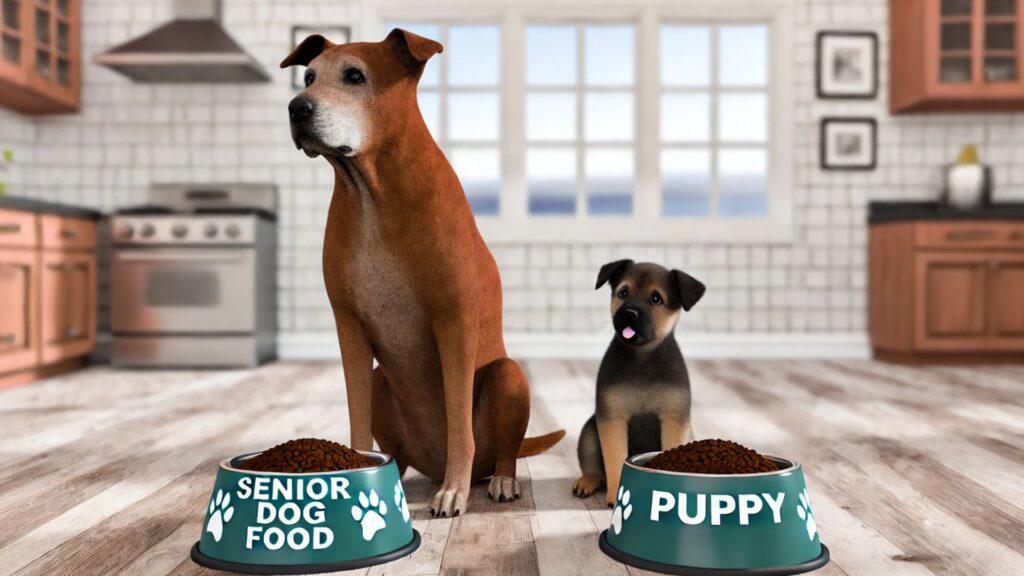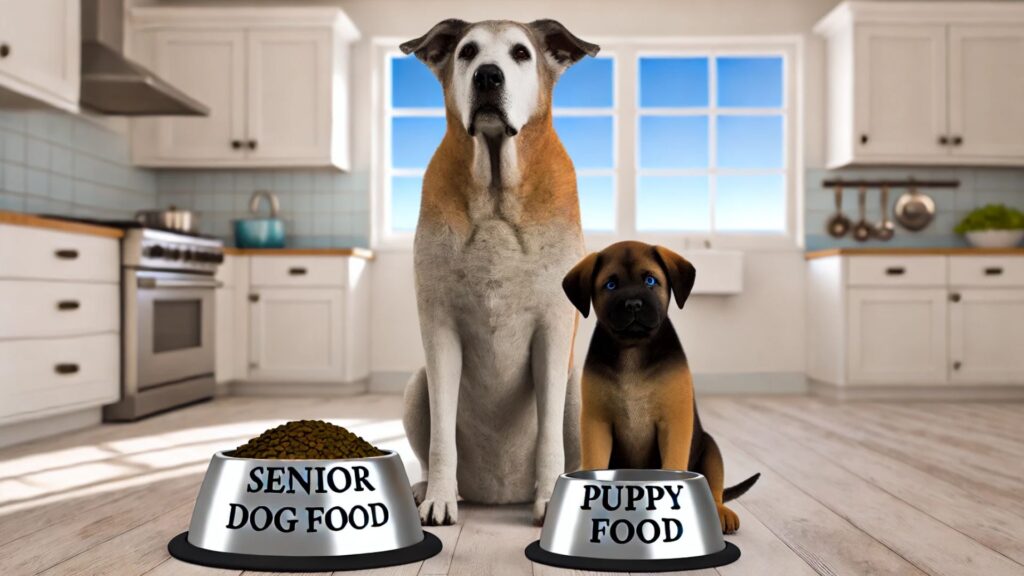As our beloved pets age, their nutritional needs evolve, prompting many pet owners to question, “Can older dogs consume puppy food?” This query stems from the understanding that different life stages require different dietary compositions. While puppy food is rich in nutrients essential for growth, senior dogs have distinct requirements.
In this comprehensive guide, we will explore whether it’s appropriate for senior dogs to consume puppy food, considering both the benefits and drawbacks.
Why Is This Important?
Understanding the dietary needs of senior dogs is crucial for maintaining their health and quality of life. As dogs age, their metabolism slows down, their activity levels decrease, and they often face age-related health issues.
Feeding them the appropriate food can help manage weight, support joint health, and ensure they receive adequate nutrients. Thus, evaluating whether senior dogs can eat puppy food is essential for informed pet care.

Should Senior Dogs Eat Food Meant for Puppies?
The question of whether senior dogs can eat puppy food is multifaceted, and the answer largely depends on the individual health and nutritional needs of the dog.
Here, we explore the potential benefits and drawbacks of feeding puppy food to senior dogs.
Nutritional Differences
Senior dogs and puppies have distinctly different nutritional requirements. Puppy food is formulated to support the rapid growth and development of young dogs, containing higher levels of protein, fat, and certain nutrients like calcium and phosphorus. These elements are essential for developing muscles, bones, and immune systems in puppies.
In contrast, senior dogs require a diet that supports slower metabolisms, joint health, and the maintenance of muscle mass without excess calories.
Potential Benefits
- Higher Protein Content: The increased protein in puppy food can help maintain muscle mass in older dogs experiencing muscle loss.
- Palatability: Puppy food is often more appealing in taste and smell, which can be beneficial for senior dogs with diminished appetites.
- Digestibility: Formulated for easy digestion, puppy food can be easier on the stomachs of senior dogs with digestive issues.
Potential Drawbacks
- Caloric Density: Puppy food’s high caloric content can lead to weight gain in senior dogs, who are generally less active. Excess weight can contribute to joint problems, diabetes, and heart disease.
- Nutrient Imbalances: The levels of calcium and phosphorus in puppy food, while beneficial for growing puppies, can cause kidney or bladder issues in senior dogs if consumed in large amounts over time.
- Lack of Specific Nutrients: Senior dog foods are formulated with specific nutrients like glucosamine and omega fatty acids to support joint health and cognitive function, which are typically absent or less concentrated in puppy food.

When It Might Be Appropriate
In some scenarios, feeding puppy food to a senior dog might be appropriate, albeit temporarily and under veterinary guidance:
- Underweight Senior Dogs: Veterinarians may recommend puppy food for underweight senior dogs to help them gain weight due to its higher calorie content.
- Picky Eaters: If a senior dog is particularly finicky and refuses other foods, puppy food might be used as a short-term solution to ensure they receive necessary nutrients.
Veterinarian Guidance
Consulting with a veterinarian is essential before making any dietary changes for a senior dog. A vet can provide personalized recommendations based on the dog’s health status, activity level, and specific nutritional needs.
They might also suggest alternatives to puppy food that can offer similar benefits without the associated risks, such as high-protein senior dog food or prescription diets tailored for older dogs with specific health issues.
Frequently Asked Questions
Can puppy food be harmful to senior dogs?
Feeding puppy food regularly to senior dogs can lead to weight gain and nutritional imbalances, which may cause health issues such as joint pain, kidney problems, and digestive discomfort.
How often can senior dogs eat puppy food?
If puppy food is necessary, it should be fed in moderation and not as a primary diet. Consulting with a veterinarian is crucial to determine the appropriate frequency and portion size.
Are there better alternatives to puppy food for senior dogs?
Yes, senior dog food is specifically formulated to meet the needs of older dogs, providing balanced nutrition with ingredients that support joint, cognitive, and digestive health.
Conclusion
While senior dogs can technically eat puppy food, it is generally not recommended as a regular diet. The higher calorie content and inappropriate nutrient balance can lead to various health issues. Senior dog food is tailored to meet the unique needs of aging dogs, ensuring they remain healthy and active in their golden years.
Always consult with a veterinarian to choose the best diet for your senior dog based on their specific health needs and lifestyle.


